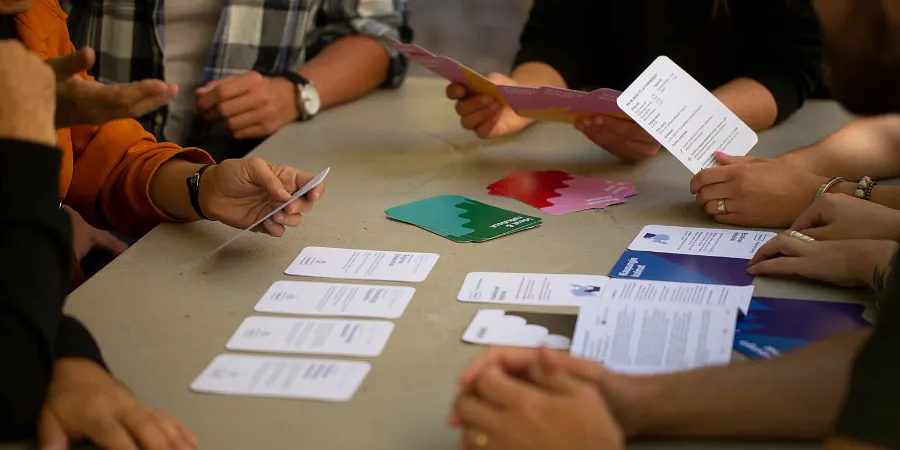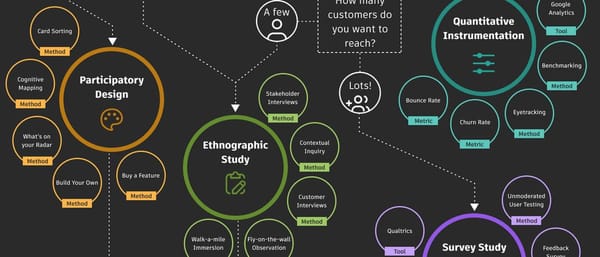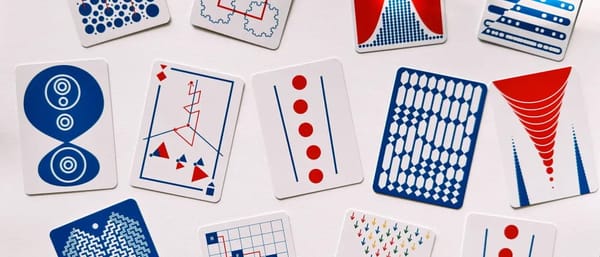№ 33 | A Card Game for Participatory Budgeting, A Little Wordy, 20 Blog Post Formats, A Skill Tree for 3D Printing & Modeling, 8 Alternatives to ’How Are You?‘, and How Asynchronous Work Can Fuel Creativity

Helsinki
Old news (2019), but… A card game played by residents in Helsinki as part of a “participatory budgeting” exercise: “How a card game can help city residents suggest new ideas.” Sadly, the links to download the game no longer appear to be working. 😢 (But, the article describing the game is fairly thorough!)


[Context: I found this article via a search for ‘Helsinki cad game,’ after new—newly invited—member Lee Ryan mentioned creating the Helisinki Card Game. I don't think this is the same game, but YAY for new discoveries?!]
A Little Wordy

A word game (duh) from The Oatmeal. Why am I sharing it here? Well, it's fun, for starters. But also, I wonder… How might this basic game structure be applied to more serious games? 🤔 It’d have to be a situation where there’s a clear right answer. And clues that get you closer to a correct guess.
20 blog post formats for teams
Ooh. Here's something you might find inspiring (the format and/or the content): A micro-site—no “an internet pocket book”—offering “a set of format ideas for blog posts, with links to real-world examples.”
A Skill Tree for 3D Printing & Modeling
Self explanatory. I love skill trees (in board games, video games, Kahn academy, and elsewhere) as a way to think about the micro skills that build upon each other…without falling into the trap of a homogeneous, linear, learning path. There's something about the quasi-sequencing for guidance, but flexibility to build your own personal learning path.

“How are you?”
Don’t say ‘How are you?’ Ask these 8 questions instead, says expert: ‘You’ll get a genuine response’
Eight fantastic alternatives to the ubiquitous ‘How are you?’ The first two have been a part of my conversations for years. Though, when I ask (or answer) “How are you?” I'm expecting (or will give) an honest answer. If I ask, I want to know—really!

“Asynchronous Work Can Fuel Creativity”
Not exactly what I expected based on the source (HBR) and the headline “Asynchronous Work Can Fuel Creativity,” but… 💯 Basically, the cited research looked Baul folk musicians in India and “the value of asynchronicity for low-status members of creative teams”—giving women and marginalized people more of a voice through asynchronous musical contributions. Then, a generalized lesson 🤨 for the workspace:
Similarly, some research has shown creative benefits of asynchronicity for brainstorming: the largest quantity and best quality of ideas are generated when people can work separately first, then bring their ideas together.
And also:
An effective and largely feasible solution to inequality in creative teams at many organizations.
FWIW… In my own work at Mural, we've been practicing async brainstorming and critique sessions for a bit now; for many situations, I find this a preferable way to work. Sometimes it's all async, but we've seen a lot of success with opening up the brainstorming as pre-work ahead of a synchronous meeting.





